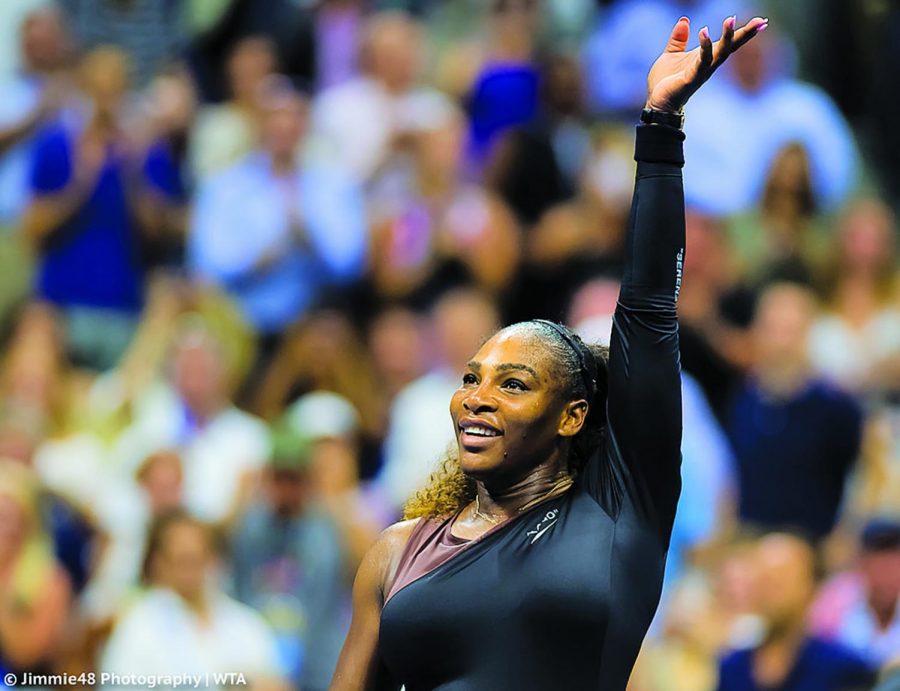Citations against Serena Williams reveal sexist double standard in tennis
Williams ended up losing the match after multiple arguments with the ref.
On Sept. 8, Naomi Osaka beat longtime tennis champion Serena Williams, becoming the first Japanese woman in U.S. Open history to win a grand slam final. Though this was a milestone for women of color in tennis, the moment was overshadowed by the actions of Carlos Ramos, the umpire who issued three citations to Williams, earning Osaka the match point that led to her winning the game.
The first citation towards Williams was for receiving coaching during the match. The two citations that followed (one for “verbal abuse” and the other for “racquet abuse”) were completely unjustified and targeted Serena as a person rather than as an athlete.
During the match, Serena accused Ramos of this very behavior, saying that he was “attacking [her] character” and demanded an apology from him. Ramos’ behavior showed that women who are opinionated and not afraid to speak up for themselves should be punished, and this is simply outrageous.
Time and time again, women are perceived as shrewish and dramatic for speaking up for themselves, while men who do the same are praised. In Williams’ case, she was chastised for yelling and breaking her racquet, a common expression of frustration on the tennis court.
It seems as though even when women try to defend themselves and stand up for what they believe in, their complaints are downplayed and even ridiculed. An example of this is the Herald Sun cartoon by Mark Knight, in which he portrayed Williams throwing a fit on the court with a smashed racquet and a pacifier at her feet. This cartoon not only perpetuates a disgusting and racist stereotype, but it ultimately dehumanizes Williams.
People fixate on how Serena handled the situation, as if it’s the first reaction of its kind. Many are even suggesting that she’s setting a bad example. One Fox News correspondent mentioned that he’s “never seen Roger Federer do that.” Fact check: Federer has “done that” along with Novak Djokovic, Andy Murray, Stan Wawrinka and a slew of others. Marcos Baghdatis even broke four racquets at the 2012 Australian Open while the umpire hardly looked over his shoulder to glance at Baghdatis.
This being so, the problem doesn’t seem to be about smashing tennis racquets; it seems to be about Serena and who she is. People have a problem with her outfits, her body type and even the fact that she is not afraid to speak her mind, all of which have nothing to do with her game. Ultimately, I’m saddened by the fact that she faced unnecessary repercussions for simply being fed up.
Still yet, I think both Williams and Osaka were heroes in their own right. Osaka, for breaking down barriers and claiming her place as a young champion and Williams, for refusing to be silenced and for speaking up for herself and for all women.







